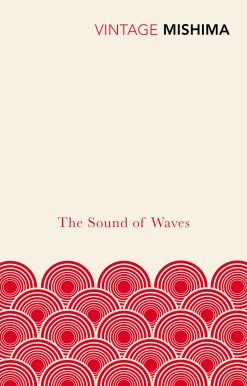Description
From bestselling author Diane Setterfield, a new mystery as gorgeous, spellbinding and addictively readable as her blockbuster debut The Thirteenth Tale.Solstice is a time of dreaming, a time of stories and a time of magic.On a dark, misty night in the small English village of Radcot, locals gather at the Swan Inn to cap their day with drinks and lore. The 600-year-old pub is a famed hub for storytellers, but the patrons cannot know that their evening will be stranger than any tale they could weave. Into the inn bursts a mysterious man, sopping and bloodied and carrying an unconscious four-year-old girl. But before he can explain who he and the child are, and how they came to be injured, he collapses.Upriver, two families are searching desperately for their missing daughters. Alice Armstrong has been missing for twenty-four hours, ever since her mother’s suicide. And Amelia Vaughan vanished without a trace two years prior. When the families learn of the lost little girl at the Swan Inn, each wonders if their child has at last been found. But identifying the child may not be as easy as it seems.Once Upon a River is a miracle of a novel, a tale of love and family, of secrets and betrayal, and of the transformative power of storytelling.
Additional information
| Weight | 2.34 kg |
|---|---|
| Dimensions | 2.85 × 13.97 × 2.93 cm |
| PubliCanadation City/Country | Canada |
| Format | |
| language1 | |
| Pages | 432 |
| Publisher | |
| Year Published | 2019-11-5 |
| Imprint | |
| ISBN 10 | 0385663331 |
| About The Author | DIANE SETTERFIELD is the author of The Thirteenth Tale, which was published in thirty-eight countries worldwide and has sold more than three million copies, and Bellman & Black. Before leaving academia to pursue writing, she taught English at the Institut universitaire de technologie and the Ecole nationale supérieure de Chimie, both in Mulhouse, France, and later lectured in French at the University of Central Lancashire in the UK. She lives in Oxford, UK. |
An Amazon Best Book of the YearA Good Housekeeping Best Book of the Year"Setterfield masterfuly assembles an ensemble of wounded, vulnerable characters who, nevertheless, live by the slimmest margins of hope. . . . [Once Upon a River] celebrates the timeless secrets of life, death and imagination—and the enduring power of words. Fans, rejoice!" —Kirkus Reviews, starred review"Once Upon a River [is] an eerily mystic tale. . . . Though Setterfield writes emotions with marvelous truth and subtlety, her most stunning prose is reserved for evocative descriptions of the natural world, creating an immersive experience made of light, texture, scent and sensation. . . . This is not a tightly plotted whodunit so much as a story for those who appreciate the tale's telling as much as its end—who mark with interest the bends in the river, and who will treasure the friends they bump into along the way." —The Washington Post"A story, no matter how cleverly it is structured, lives or dies on the vividness of its characters. Setterfield, a true storyteller, makes us care about all her players in this beguiling novel." —The Times (UK)"Once Upon a River is a glorious tapestry of a book that combines folklore and science, magic and myth. Suspenseful, romantic and richly atmospheric, the beginning of this novel will sweep you away on a powerful current of storytelling, transporting you through worlds both real and imagined, to the triumphant conclusion whose depths will continue to give up their treasures long after the last page is turned." —Bookriot"Setterfield's prose feels lifted from another era, a gothic lyricism resembling old classics like Jane Eyre." —Entertainment Weekly"Diane Setterfield weaves a beautiful, suspenseful mystery . . . that will keep you engrossed until the very last page." —PopSugar"Once Upon a River [is] a story that straddles the line between reality and fantasy, between science and the supernatural, between the land of the living and the unknown terrain of the dead. . . . Richly steeped in folklore and magical realism, Once Upon a River is a deeply moving novel about love and loss, family and community, about magic and science and that mysterious space between life and death. But most of all, it is a novel about stories, the ones we tell ourselves every day and the ones we choose to share with others." —Bustle"Once Upon A River is magical, in every which way. . . . It's the power of her storytelling that allows readers to suspend disbelief, and draws them through each tangled, dazzling chapter. . . . Setterfield's imagination is powered by an otherworldly force. This riverine novel has the mood and feel of a ghost story told late into the night, and will win over readers who enjoy a touch of age-old enchantment." —Financial Times (UK)"A bold, gripping narrative which fuses science, mystery and myth." —The Daily Mail (UK)"Once Upon a River continues to demonstrate her mastery of the Gothic genre in a way that will appeal to modern readers. . . . Setterfield knows how to make the words sing. It is worth taking a journey down the Thames with her." —The Independent (UK)"Setterfield is a master of the medium. Like the river at its core, her plot twists and turns with ease and confidence, and her writing is beautiful. The story she tells—and which her characters retell—is as vivid as the old folktales and real histories that inform it." —The Spectator (UK)"Exploring themes of storytelling, parenthood, science and society on the cusp of change, this is a richly evocative novel." —Observer (UK)"A finely drawn cast and bravura storytellling." —Mail on Sunday (UK) "An absolute feast of a book, which will keep you engrossed as the cold north wind whistles outside." —Red "Brimming with folklore, intrigue and romance, this is a story to savour." —Woman and Home "An enchanting mix of mystery and folklore." —Good Housekeeping "This pungently atmospheric, quietly smoldering thriller sensitively mixes superstition, oral storytelling and the emerging psychology movement of the 19th century." —Metro (UK)"This enchanting historical story is full of folklore and intrigue." —Prima"Like Setterfield's earlier novel The Thirteenth Tale, Once Upon a River is very much a story about the spellbinding power of storytelling. . . . A deeply satisfying read." —New York Journal of Books "This dense, absorbing, beautifully atmospheric novel weaves a truly hypnotic spell." —Heat"Setterfield brilliantly captures a time and place on the cusp of modernity, plays bleakness and warmth off against each other to create a life-affirming tale of what it means to be human." —Press Association"One of the most pleasurable and satisfying new books I've read in a long time. Setterfield is a master storyteller. . . . Swift and entrancing, profound and beautiful." —Madeline Miller, internationally bestselling author of Circe and The Song of Achilles"Once Upon a River is a delight, just marvellous. I devoured it in gulps." —Jo Baker, author of Longbourn "Diane's masterful storytelling draws you in to a beguiling tale, full of twists and turns like the river at its heart, and just as rich and intriguing. It lures you into its depths and carries you along in its vividly evoked world" —M.L. Stedman, #1 New York Times bestselling author of The Light Between Oceans "This is magical, bewitching storytelling. . . . High prose expressed with rare clarity, story for the unashamed sake of story, a kind of moral dreaminess . . . well, the list continues to grow." —Jim Crace, National Book Critics Circle winner and author of Being Dead and Harvest "I was completely spellbound by this book. Numerous strands of the same story are skillfully woven into a magical web from which I, as a reader, had no desire to escape. Setterfield's prose is beautiful, dark and eerily atmospheric, and her rich cast of characters convincingly illustrate the best and worst of humanity. Utterly brilliant!" —Ruth Hogan, internationally bestselling author of The Keeper of Lost Things and The Wisdom of Sally Red Shoes"Once Upon A River succeeds in doing what you hope every book will do—pull you in from the first page, hold you captive in the middle, then leave you satisfied and thoughtful at the end. I loved it." —Renee Knight, author of Disclaimer |
|
| Excerpt From Book | The Story Begins . . . There was once an inn that sat peacefully on the bank of the Thames at Radcot, a long day’s walk from the source. There were a great many inns along the upper reaches of the Thames at the time of this story and you could get drunk in all of them, but beyond the usual ale and cider, each one had some particular pleasure to offer. The Red Lion at Kelmscott was musical: bargemen played their fiddles in the evening and cheesemakers sang plaintively of lost love. Inglesham had the Green Dragon, a tobacco- scented haven of contemplation. If you were a gambling man, the Stag at Eaton Hastings was the place for you, and if you preferred brawling, there was nowhere better than the Plough just outside Buscot. The Swan at Radcot had its own specialism. It was where you went for storytelling.The Swan was a very ancient inn, perhaps the most ancient of them all. It had been constructed in three parts: one was old, one was very old and one was older still. These different elements had been harmonized by the thatch that roofed them, the lichen that grew on the old stones and the ivy that scrambled up the walls. In summertime day- trippers came out from the towns on the new railway, to hire a punt or a skiff at the Swan and spend an afternoon on the river with a bottle of ale and a picnic, but in winter the drinkers were all locals, and they congregated in the winter room. It was a plain room in the oldest part of the inn, with a single window pierced through the thick stone wall. In daylight this window showed you Radcot Bridge and the river flowing through its three serene arches. By night (and this story begins at night) the bridge was drowned black, and it was only when your ears noticed the low and borderless sound of great quantities of moving water that you could make out the stretch of liquid blackness that flowed outside the window, shifting and undulating, darkly illuminated by some energy of its own making. Nobody really knows how the tradition of storytelling started at the Swan, but it might have something to do with the Battle of Radcot Bridge. In 1387, five hundred years before the night this story began, two great armies met at Radcot Bridge. The who and the why of it are too long to tell, but the outcome was that three men died in battle – a knight, a varlet and a boy – and eight hundred souls were lost, drowned in the marshes, attempting to flee. Yes, that’s right. Eight hundred souls. That’s a lot of story. Their bones lie under what are now watercress fields. Around Radcot they grow the watercress, harvest it, crate it up and send it to the towns on barges, but they don’t eat it. It’s bitter, they complain; so bitter it bites you back, and besides, who wants to eat leaves nourished by ghosts? When a battle like that happens on your doorstep and the dead poison your drinking water, it’s only natural that you would tell of it, over and over again. By force of repetition you would become adept at the telling. And then, when the crisis was over and you turned your attention to other things, what is more natural than that this newly acquired expertise would come to be applied to other tales? The landlady of the Swan was Margot Ockwell. There had been Ockwells at the Swan for as long as anyone could remember, and quite likely for as long as the Swan had existed. In law her name was Margot Bliss, for she was married, but law was a thing for the towns and cities; here at the Swan she remained an Ockwell. Margot was a handsome woman in her late fifties. She could lift barrels without help and had legs so sturdy she never felt the need to sit down. It was rumoured she even slept on her feet, but she had given birth to thirteen children, so clearly she must have lain down sometimes. She was the daughter of the last landlady and her grandmother and great-grandmother had run the inn before that, and nobody thought anything of it being women in charge at the Swan at Radcot. It was just the way it was. Margot’s husband was Joe Bliss. He had been born at Kemble, twenty-five miles upstream, a hop and a skip from where the Thames emerges from the earth in a trickle so fine that it is scarcely more than a patch of dampness in the soil. The Blisses were chesty types. They were born small and ailing and most of them were goners before they were grown. Bliss babies grew thinner and paler as they lengthened, until they expired completely, usually before they were ten and often before they were two. The survivors, including Joe, got to adulthood shorter and slighter than average. Their chests rattled in winter, their noses ran, their eyes watered. They were kind, with mild eyes and frequent playful smiles. At eighteen, an orphan and unfit for physical labour, Joe had left Kemble, to seek his fortune doing he knew not what. From Kemble there are as many directions a man can go in as elsewhere in the world, but the river has its pull; you’d have to be mightily perverse not to follow it. He came to Radcot and, being thirsty, stopped for a drink. The frail-looking young man with his floppy black hair that contrasted with his pallor sat unnoticed, eking out his glass of ale, admiring the innkeeper’s daughter and listening to a story or two. He found it captivating to be amongst people who spoke out loud the kind of tales that had been alive inside his head since boyhood. In a quiet interval he opened his mouth and Once upon a time . . . came out. Joe Bliss discovered his destiny that day. The Thames had brought him to Radcot and at Radcot he stayed. With a bit of practice he found he could turn his tongue to any kind of tale, whether it be gossip, historic, traditional, folk or fairy. His mobile face could convey surprise, trepidation, relief, doubt, and any other feeling, as well as any actor. Then there were his eyebrows. Luxuriantly black, they told as much of the story as his words did. They drew together when something momentous was coming, twitched when a detail merited close attention, and arched when a character might not be what he seemed. Watching his eyebrows, paying attention to their complex dance, you noticed all sorts of things that might otherwise have passed you by. Within a few weeks of his starting to drink at the Swan he knew how to hold the listeners spellbound. He held Margot spellbound too, and she him. At the end of a month, Joe walked sixty miles to a place quite distant from the river, where he told a story in a competition. He won first prize, naturally, and spent the winnings on a ring. He returned to Radcot grey with fatigue, collapsed into bed for a week, and at the end of it got to his knees and proposed marriage to Margot. ‘I don’t know . . .’ her mother said. ‘Can he work? Can he earn a living? How will he look after a family?’ ‘Look at the takings,’ Margot pointed out. ‘See how much busier we have been since Joe started telling his stories. Suppose I don’t marry him, Ma. He might go away from here. Then what?’ It was true. People came more often to the inn those days, and from further away, and they stayed longer, to hear the stories Joe told. They all bought drinks. The Swan was thriving. ‘But with all these strong, handsome young men that come in here and admire you so – wouldn’t one of those do better?’ ‘It is Joe that I want,’ Margot said firmly. ‘I like the stories.’ She got her way. That was all nearly forty years before the events of this story, and in the meantime Margot and Joe had raised a large family. In twenty years they had produced twelve robust daughters. All had Margot’s thick brown hair and sturdy legs. They grew up to be buxom young women with blithe smiles and endless cheer. All were married now. One was a little fatter and one a little thinner, one a little taller and one a little shorter, one a little darker and one a little fairer, but in every other respect they were so alike that the drinkers could not tell them apart, and when the girls returned to help out at busy times they were universally known as Little Margot. After bearing all these daughters there had been a lull in the family life of Margot and Joe, and both of them had thought her years of child-rearing were at an end, but then came the last pregnancy and Jonathan, their only son. With his short neck and his moon face, his almond eyes with their exaggerated upward tilt, his dainty ears and nose, the tongue that seemed too big for his constantly smiling mouth, Jonathan did not look like other children. As he grew, it became clear that he was different from them in other ways too. He was fifteen now, but where other boys of his age were looking forward impatiently to manhood, Jonathan was content to believe that he would live at the inn forever with his mother and father, and wished for nothing else. Margot was still a strong and handsome woman, and Joe’s hair had whitened, though his eyebrows were as dark as ever. He was now sixty, which was ancient for a Bliss. People put his survival down to the endlessness of Margot’s care for him. These last few years, he was sometimes so weak that he lay in bed for two or three days at a time, eyes closed. He was not sleeping; no, it was a place beyond sleep that he visited in these periods. Margot took his sinking spells calmly. She kept the fire in to dry the air, tilted cooled broth between his lips, brushed his hair and smoothed his eyebrows. Other people fretted to see him suspended so precariously between one liquid breath and the next, but Margot took it in her stride. ‘Don’t you worry, he’ll be all right,’ she would tell you. And he was. He was a Bliss, that’s all. The river had seeped into him and made his lungs marshy. It was solstice night, the longest night of the year. For weeks the days had been shrinking, first gradually, then precipitously, so that it was now dark by mid-afternoon. As is well known, when the moon hours lengthen, human beings come adrift from the regularity of their mechanical clocks. They nod at noon, dream in waking hours, open their eyes wide to the pitch-black night. It is a time of magic. And as the borders between night and day stretch to their thinnest, so too do the borders between worlds. Dreams and stories merge with lived experience, the dead and the living brush against each other in their comings and goings, the past and the present touch and overlap. Unexpected things can happen. Did the solstice have anything to do with the strange events at the Swan? You will have to judge for yourself. Now you know everything you need to know, the story can begin. |
Only logged in customers who have purchased this product may leave a review.






Reviews
There are no reviews yet.